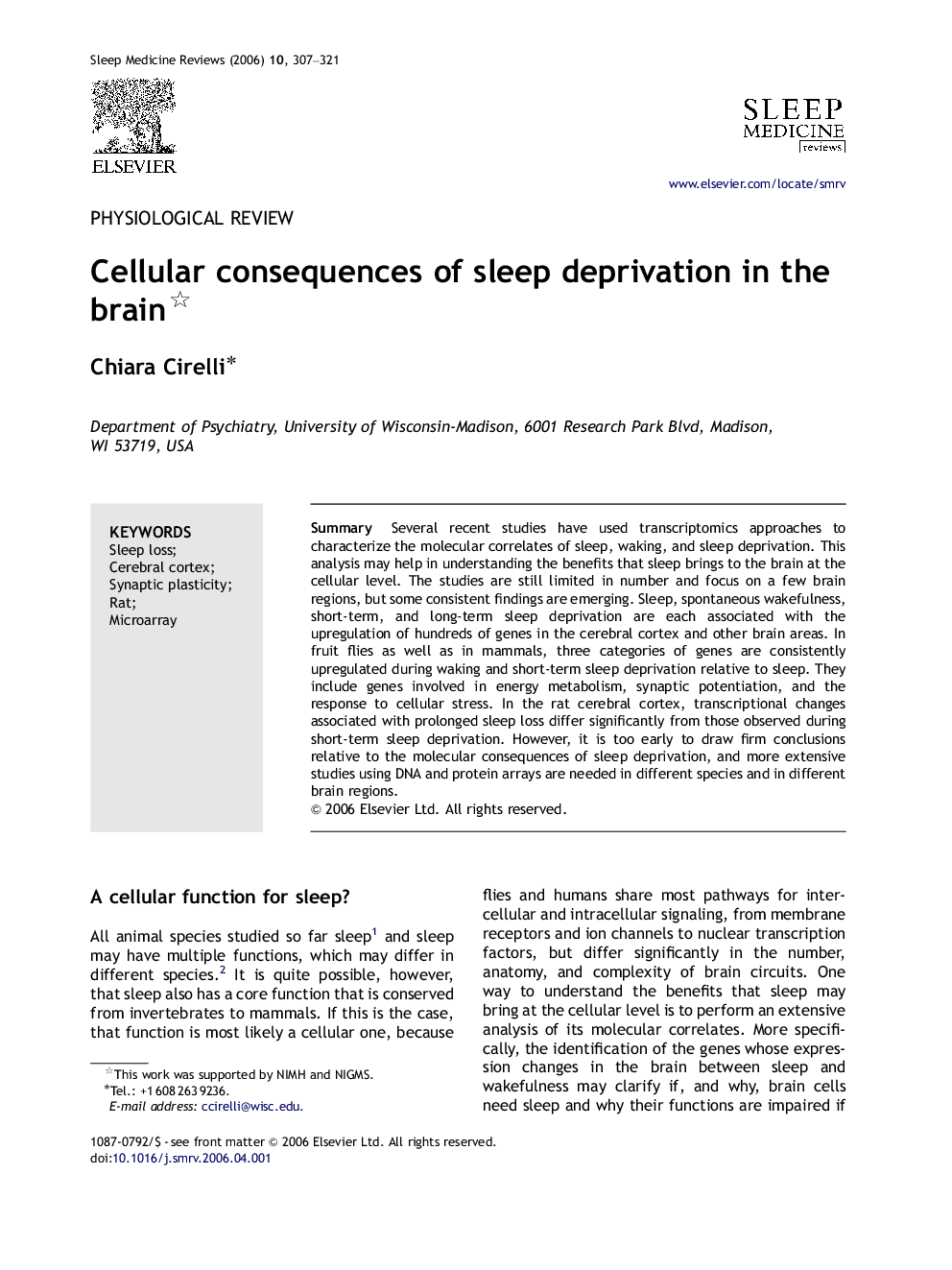| Article ID | Journal | Published Year | Pages | File Type |
|---|---|---|---|---|
| 3091854 | Sleep Medicine Reviews | 2006 | 15 Pages |
SummarySeveral recent studies have used transcriptomics approaches to characterize the molecular correlates of sleep, waking, and sleep deprivation. This analysis may help in understanding the benefits that sleep brings to the brain at the cellular level. The studies are still limited in number and focus on a few brain regions, but some consistent findings are emerging. Sleep, spontaneous wakefulness, short-term, and long-term sleep deprivation are each associated with the upregulation of hundreds of genes in the cerebral cortex and other brain areas. In fruit flies as well as in mammals, three categories of genes are consistently upregulated during waking and short-term sleep deprivation relative to sleep. They include genes involved in energy metabolism, synaptic potentiation, and the response to cellular stress. In the rat cerebral cortex, transcriptional changes associated with prolonged sleep loss differ significantly from those observed during short-term sleep deprivation. However, it is too early to draw firm conclusions relative to the molecular consequences of sleep deprivation, and more extensive studies using DNA and protein arrays are needed in different species and in different brain regions.
